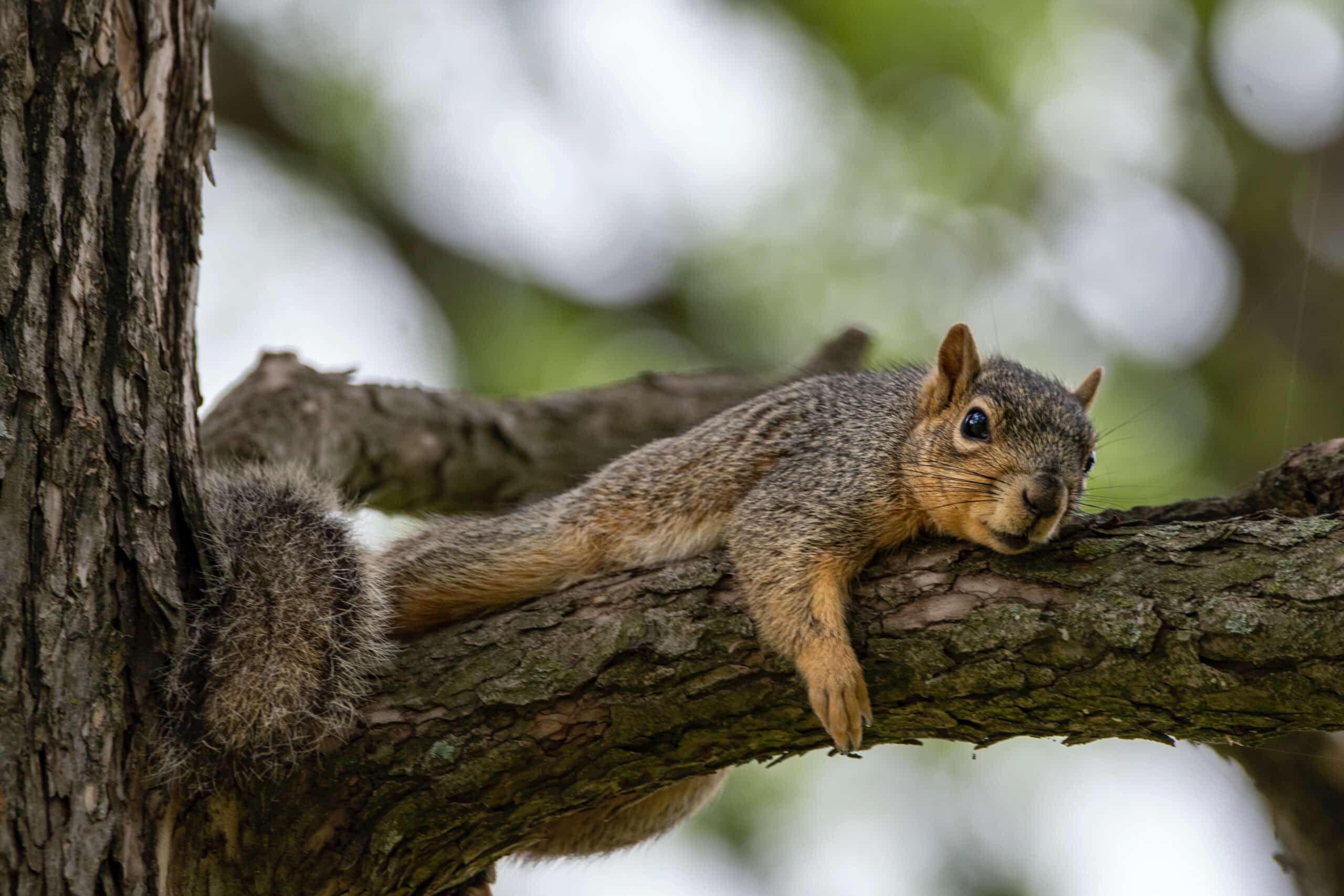Need Squirrel Removal ASAP?
Give us a call for 24/7 Emergency Wildlife Control & Removal in Dallas/Fort Worth.
(817) 606-7607Contact UsContact UsTexas is home to a wide variety of wildlife, including the common and frequently endearing squirrel. While these creatures serve an important part in ecological balance, they can occasionally become unwelcome guests in homes and structures. Squirrels invading dwelling spaces are not only annoying, but they can also pose health issues due to potential contamination. This article will look at the significance of squirrel decontamination in Texas, concentrating on the issues specific to the state and the best techniques for maintaining a safe and healthy environment.
Understanding the Dangers:
Squirrels, like others, can carry diseases and parasites that can be passed on to humans. Their droppings, urine, and nesting materials can store bacteria, viruses, and allergies, putting occupants’ health at danger. The possibility of sighting wildlife is greater in Texas, where warm weather and different ecosystems abound. Squirrels may seek refuge in attics, crawl spaces, and wall voids, increasing the likelihood of contamination.
Texas’s difficulties:
Heat and Humidity: Texas has high temperatures and humidity levels, which provide an environment favorable for bacterial and fungal growth. Squirrel droppings can create breeding grounds for hazardous pathogens if left unchecked, making quick cleanup critical.
It is known for its numerous habitats, and this diversity extends to its wildlife population. Squirrels in Texas may carry region-specific illnesses, necessitating a specialized strategy to decontamination.
Rapid urbanization in the state of Texas has resulted in growing overlap between human areas and wildlife regions. Because of this proximity, squirrel infestations in residential areas are more likely, demanding significant cleaning efforts.
Squirrel Decontamination Best Practices:
Professional check: Hire a professional wildlife removal specialist to do a complete check of your property. Professionals can locate access points, nesting locations, and areas that need to be decontaminated.
Safe Removal: Once squirrels have been removed from the premises, it is critical that they be relocated in a safe and humane manner. To prevent their return, trapped squirrels should be released far from human habitation.
Cleaning and disinfection: Use appropriate cleaning chemicals to clean and disinfect damaged areas. To avoid potential sources of contamination, squirrel droppings and nesting materials should be properly removed.
Sealing Entry Points: Seal any entry points squirrels may have utilized to gain access to your property to prevent future infestations. Repairing roof damage, fastening vents, and closing gaps in walls are all part of this.
Consult Health Authorities: If there is a risk of disease transmission, it is best to seek advice from local health authorities on testing and further precautions.
Because of the state’s unique environmental and ecological characteristics, squirrel decontamination in Texas necessitates a proactive and thorough strategy. Residents may create a safe and healthy living environment by knowing the dangers, addressing challenges, and implementing best practices. Human-wildlife coexistence in Texas benefits from timely intervention, professional aid, and thorough cleaning measures.
Are you in need of squirrel removal? Our friendly operators at Dallas Fort Worth Wildlife Control are available now at (817) 606-7607. Find out more about our wildlife removal in Arlington and Fort Worth, TX.


